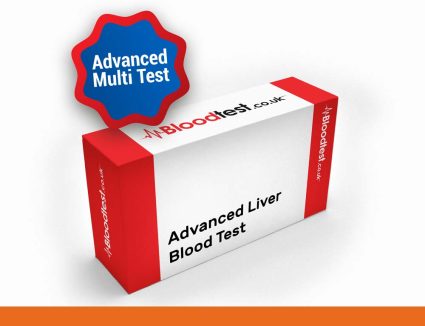Comprehensive Guide to Liver Function Tests: Essential Insights for Optimal Health
Unpacking the Importance and Functions of Liver Function Tests

Advanced Liver Blood Test in Fareham: Liver function tests (LFTs) are indispensable instruments for evaluating the extensive health and operational efficiency of your liver. These tests are meticulously crafted to assess multiple proteins, liver enzymes, and bilirubin concentrations in your bloodstream, providing a detailed overview of your liver's functioning capacity. Understanding the role of a healthy liver is crucial, as it undertakes more than 500 essential tasks—ranging from detoxifying harmful substances to synthesising crucial proteins required for blood clotting, as well as metabolising vital nutrients like fats, carbohydrates, and proteins. Any irregularities in these metrics may indicate potential liver disease, thereby underscoring the pivotal significance of LFTs in routine health assessments.
The components of liver function tests typically include evaluations for alanine aminotransferase (ALT), aspartate aminotransferase (AST), alkaline phosphatase (ALP), total bilirubin, and albumin. Each of these elements offers unique insights into distinct dimensions of liver health. For example, heightened levels of ALT and AST may signify inflammation within the liver, while increased bilirubin levels can indicate conditions such as bile duct obstruction or liver dysfunction. Regular monitoring of liver function is particularly essential for individuals facing risk factors like obesity, alcohol consumption, or a family history of liver disease.
Gaining a thorough understanding of liver function test results equips individuals to take proactive steps towards maintaining their liver health. By identifying potential problems early on, healthcare providers can recommend necessary lifestyle adjustments or additional diagnostic tests to prevent serious health complications. Routine testing is crucial for anyone looking to protect their overall wellness, especially for those residing in regions such as Fareham, where access to healthcare services may not always be readily available.
Ready to Expand Your Knowledge Further?
 Diving Into the Different Types of Liver Function Tests Available
Diving Into the Different Types of Liver Function Tests Available
The array of liver function tests encompasses various assessments, each offering distinct insights into liver health. The most commonly performed tests include evaluations for ALT, AST, ALP, bilirubin, and albumin. Both ALT and AST are enzymes primarily found within the liver; elevated levels can point to possible cellular damage to the liver. The ALP test evaluates the concentration of alkaline phosphatase in the bloodstream, which can aid in diagnosing liver diseases or identifying bile duct obstructions.
Bilirubin testing assesses the levels of bilirubin, a substance produced during the breakdown of red blood cells. Elevated bilirubin levels can lead to jaundice, characterised by the yellowing of the skin and eyes, indicating possible liver dysfunction or bile duct issues. Conversely, the albumin test evaluates the liver’s ability to synthesise this vital protein, which plays a crucial role in maintaining osmotic pressure within the blood; reduced levels of albumin may suggest chronic liver disease or malnutrition.
Being well-informed about these tests can greatly enhance an individual’s understanding of their liver health status. For those living in Fareham, consulting with local healthcare practitioners ensures access to the latest testing methodologies, facilitating timely interventions and care. Regular participation in these tests allows for monitoring liver health trends over time, which is critical in preventing and managing potential liver diseases.
The Critical Importance of Regular Liver Testing for Health Preservation
Routine liver function tests are vital for the early detection of liver diseases. Numerous liver conditions, such as hepatitis and cirrhosis, often do not present noticeable symptoms until they reach advanced stages. By consistently scheduling testing, individuals can identify potential problems before they escalate, allowing for timely interventions and treatments that could save lives.
In the UK, the rising incidence of conditions such as non-alcoholic fatty liver disease (NAFLD) has been significantly influenced by increasing obesity rates. Regular liver function tests (LFTs) are crucial for identifying at-risk individuals and monitoring their liver health, ultimately leading to the development of tailored care plans. For those residing in Fareham, local healthcare practitioners can provide personalised advice on the frequency and types of testing required based on individual health profiles.
Moreover, consistent testing helps track the effectiveness of ongoing treatments or lifestyle changes. Individuals diagnosed with liver conditions can monitor their progress through regular tests, allowing for timely adjustments to their treatment plans. This proactive approach not only enhances liver health but also contributes to overall well-being, promoting healthier lifestyles for residents of Fareham and beyond.
Exploring the Functionality of Advanced Liver Blood Tests

Key Features of Advanced Liver Tests You Should Know
Advanced liver blood tests employ innovative techniques to provide more comprehensive insights into liver health than standard liver function tests. These advanced methodologies can detect liver diseases at earlier stages, offering a greater opportunity for successful interventions. Techniques such as FibroScan, which measures liver stiffness, alongside advanced imaging technologies, yield critical information regarding the liver's condition, helping to identify issues that conventional tests might overlook.
For individuals in Fareham, advanced testing can be particularly advantageous for those with established risk factors for liver disease, such as chronic alcohol use or obesity. These tests provide a more nuanced understanding of liver health, empowering healthcare providers to devise tailored treatment plans that cater to individual needs. As the prevalence of liver disease continues to rise in the UK, access to advanced testing becomes increasingly vital.
Moreover, advanced tests often incorporate the analysis of biomarkers linked to liver health, allowing healthcare professionals to create a more complete picture of an individual's liver status. This holistic approach empowers patients to take control of their health, facilitating informed decisions regarding lifestyle modifications or medical interventions based on precise assessments and evaluations.
Significant Benefits of Undergoing Advanced Liver Testing
The advantages of participating in advanced liver blood tests are numerous and impactful. These tests provide a higher degree of accuracy in diagnosing liver conditions, which is essential for determining appropriate treatment pathways. With more precise data, healthcare providers can formulate personalised treatment plans that directly address the unique aspects of an individual’s liver health.
Furthermore, advanced testing enhances the monitoring of chronic liver conditions. Patients can observe how their liver responds to treatments over time, enabling timely adjustments to their care strategies. This is particularly crucial in contexts such as hepatitis or NAFLD, where lifestyle changes and medications play significant roles in management.
Additionally, advanced tests can aid in differentiating between various types of liver diseases, which is vital for initiating the correct treatment. For instance, distinguishing between alcoholic liver disease and NAFLD can greatly influence management strategies. In Fareham, where healthcare facilities often emphasise comprehensive care, advanced liver blood tests can help bridge the gap between initial diagnosis and effective treatment.
For those at risk of liver disease, opting for advanced liver blood tests can be a life-saving decision, significantly increasing the chances of early detection and successful management of liver conditions.
Identifying the Right Time to Pursue Advanced Liver Testing

Determining the optimal timing for advanced liver blood tests is crucial for individuals at risk of liver disease. If you possess risk factors such as obesity, diabetes, or a history of excessive alcohol consumption, it is essential to discuss advanced testing options with your healthcare provider. Unexplained symptoms such as fatigue, jaundice, or abdominal discomfort may also warrant further investigation through advanced testing.
While standard liver function tests can indicate abnormalities, these results often require further exploration to accurately diagnose the underlying cause. Residents of Fareham should remain vigilant and proactive in managing their health, seeking advanced tests if they experience concerning symptoms or if their baseline liver function tests suggest potential complications.
Advanced tests can also benefit individuals with pre-existing liver conditions. Those already under treatment may require regular advanced testing to monitor the effectiveness of their therapies and make necessary adjustments. Consulting with healthcare professionals in Fareham can provide valuable insights into when and how frequently to undergo these tests, ensuring optimal management of liver health.
Recognising the Limitations and Key Considerations of Advanced Testing
While advanced liver blood tests offer numerous advantages, it is important to recognise their limitations and considerations. One significant factor is the cost of these tests, which can be higher than standard liver function tests. In some instances, health insurance may not cover these advanced assessments, making them financially inaccessible for certain individuals.
Additionally, advanced tests often necessitate specialised interpretation from healthcare providers who are proficient in hepatology. This requirement can limit accessibility, as not all healthcare facilities may have the necessary expertise. In Fareham, patients must collaborate closely with their healthcare providers to ensure they receive comprehensive care, particularly when considering advanced testing options.
Furthermore, while advanced tests can provide more detailed insights, they are not infallible. Instances of false positives and negatives can arise, resulting in unnecessary anxiety or missed diagnoses. Thus, it is crucial to interpret the results within the context of a complete medical history and clinical symptoms.
Ultimately, although advanced liver blood tests are invaluable tools for managing liver health, thoughtful consideration of their costs, accessibility, and interpretation challenges is essential. Consulting with a knowledgeable healthcare provider can guide you through these complexities, ensuring the best possible outcomes for your liver health.
Essential Preparations for Your Liver Blood Test
Key Pre-Test Guidelines for Achieving Accurate Results
Preparing for a liver blood test necessitates adherence to specific pre-test instructions to guarantee the accuracy of results. A common recommendation is to fast for a specified duration beforehand, typically requiring abstinence from food and drink for at least 8 to 12 hours prior to the test. Fasting is critical, as food intake can affect the levels of certain enzymes and substances in your blood, potentially leading to inaccurate readings.
Moreover, healthcare providers may advise you to refrain from consuming alcohol and certain medications in the days leading up to the test. Alcohol can significantly impact liver function, while medications such as pain relievers or supplements may alter enzyme levels. Discussing your current medication regimen with your healthcare provider is vital to ensure you are adequately prepared for the test.
For residents in Fareham, local healthcare facilities typically provide clear guidelines regarding preparation for liver blood tests. Adhering to these instructions can optimise the accuracy of your results, providing both you and your healthcare provider the best opportunity to thoroughly understand your liver health status.
Taking the necessary time to prepare for your test meticulously not only enhances the reliability of the results but also facilitates more meaningful discussions with your healthcare provider regarding your liver health.
What to Expect During Your Blood Test Procedure
Understanding what to anticipate during a liver blood test can mitigate any anxiety associated with the procedure. The test generally involves drawing a small blood sample from a vein in your arm, a process that is quick and typically causes minimal discomfort. Healthcare professionals are trained to ensure this experience is as seamless as possible, often using a fine needle to reduce discomfort.
Once the blood sample is collected, it is sent to a laboratory for analysis. The results may take several days to process, and during that waiting period, it is natural to feel a mixture of anticipation and concern. However, recognising that this test is a crucial step in monitoring liver health can help ease those feelings.
For residents of Fareham, many healthcare facilities provide comfortable environments for blood testing, ensuring that patients feel well cared for throughout the process. If you have any questions or concerns about the test, do not hesitate to ask your healthcare provider for clarification or reassurance. Understanding the significance of the test and its procedure can greatly enhance your overall experience.
Overall, while the notion of a blood test may seem daunting, grasping its importance and familiarising yourself with the process can transform it into a manageable and empowering experience.
Post-Test Care and Follow-Up Procedures for Optimal Health Management
After completing a liver blood test, most individuals can resume their regular activities without any restrictions. Generally, the procedure itself is straightforward, and any discomfort experienced during the blood draw is typically short-lived. If you feel lightheaded or fatigued after the test, it is advisable to take a moment to sit quietly and hydrate yourself.
Your healthcare provider will schedule a follow-up appointment to discuss the results once they become available. This follow-up serves as a vital opportunity to explore the implications of the results within the context of your overall health. For individuals in Fareham, local clinics often prioritise timely communication regarding test outcomes, ensuring that patients remain informed about their liver health status.
If any abnormalities are detected in your liver function tests, your healthcare provider will discuss potential next steps, which may involve further testing or lifestyle recommendations. Engaging in open dialogue about your results can empower you to take necessary actions to enhance your liver health.
Ultimately, post-test care is centred around ensuring that you remain informed and proactive about your health journey. Regular follow-ups and discussions with your healthcare provider will aid you in making informed decisions regarding your liver health.
Optimal Timing for Scheduling Your Liver Blood Test
Effectively scheduling your liver blood test is crucial for obtaining reliable results. It is generally advisable to have the test conducted in the morning, particularly after fasting overnight. This approach not only ensures the most accurate readings but also aligns with the body's natural rhythms, minimising fluctuations in liver enzyme levels.
For residents of Fareham, coordinating your test with your healthcare provider's availability can help streamline the process. Many local clinics offer flexible scheduling options, making it easier for you to find a suitable time for your test. Additionally, consider aligning the test with any routine check-ups or consultations to ensure a comprehensive approach to your health management.
Furthermore, if you have risk factors or existing liver conditions, discussing with your healthcare provider how frequently you should schedule these tests may be beneficial. Regular testing can play a pivotal role in monitoring your liver health and making necessary adjustments to your treatment plan.
By proactively managing the timing of your liver blood test, you can take charge of your health journey and make informed choices that support your overall well-being.
Deciphering Your Liver Test Results with Confidence
Receiving your liver function test results can evoke a range of emotions, from relief to anxiety. Your healthcare provider will explain your results, detailing what constitutes normal ranges and any abnormalities that may be present. It is crucial to comprehend what these numbers signify in the context of your overall health.
Normal ranges can vary by laboratory, making it vital to understand the specific parameters employed in your tests. For those residing in Fareham, discussing your results with an experienced healthcare provider can help clarify uncertainties and provide insights into what your results may indicate.
Abnormal results can signal potential liver issues, but they do not automatically imply that you have a serious condition. Numerous factors can influence liver enzyme levels, including medications, lifestyle choices, and recent illnesses. Your healthcare provider will assist you in interpreting these results and determining if further testing or lifestyle adjustments are necessary.
Ultimately, grasping your test results is a crucial step in managing your liver health. Effectively, it empowers you to actively engage in discussions about treatment options, lifestyle changes, or further investigations that may be warranted. Taking the time to understand and inquire about your results fosters a partnership between you and your healthcare provider, enhancing your overall health journey.
Effectively Interpreting Your Liver Test Results
Understanding Normal Ranges for Liver Function Tests
Interpreting your liver function test results begins with comprehending the normal ranges established for each specific test. These ranges can vary based on factors such as age, gender, and the laboratory conducting the analysis. For instance, typical ALT levels are generally around 7 to 56 units per litre of blood, while AST levels typically range from 10 to 40 units per litre.
Your healthcare provider will assist you in understanding these numbers, elucidating their significance within the context of your health history and lifestyle. For residents in Fareham, local healthcare professionals are well-versed in interpreting test results, supplying insights that consider both individual health circumstances and broader epidemiological data prevalent in the UK.
If your results fall within the normal range, it can offer peace of mind regarding your liver health. However, it remains crucial to maintain regular monitoring and engage in preventative health measures, as liver function can change over time. Staying informed about your health status is essential, especially given the increasing rates of liver disease in the UK.
Conversely, if your results indicate abnormalities, your healthcare provider will clarify what these deviations signify and whether they necessitate further investigation or intervention. Understanding the context of your results is essential in empowering you to make informed decisions regarding your liver health.
Interpreting Abnormal Results: Understanding Implications and Next Steps
Abnormal results in liver function tests may raise concerns regarding potential liver diseases or other health issues. For instance, elevated levels of ALT or AST can indicate liver cell damage, while high alkaline phosphatase levels may suggest bile duct obstruction or liver disease. Similarly, increased bilirubin levels can lead to jaundice, signalling possible liver dysfunction.
However, it is vital to recognise that abnormal results do not always confirm the presence of a serious condition. Several factors can affect liver enzyme levels, including certain medications, recent illnesses, or lifestyle choices. For instance, intense physical activity can temporarily elevate enzyme levels, leading to misleading results.
Upon receiving abnormal results, your healthcare provider may recommend further testing to determine the underlying cause. This could involve additional blood tests, imaging studies, or even a liver biopsy, depending on the situation. Residents of Fareham should feel empowered to ask questions and seek clarity on their results, ensuring they have a comprehensive understanding of their liver health dynamics.
Ultimately, addressing abnormal results with a proactive mindset can significantly impact your health journey, enabling you to take necessary steps toward improved liver health and overall well-being.
Determining Your Next Steps After Receiving Results
Once you receive your liver function test results, the subsequent steps largely depend on the findings. If your results fall within the normal range, your healthcare provider may recommend continuing with regular monitoring and maintaining a healthy lifestyle to support your liver health.
If your results indicate abnormalities, it is essential to engage in a thorough discussion with your healthcare provider to explore further testing or treatment options. Depending on the specific abnormalities, your provider may suggest lifestyle modifications, such as dietary changes or increased physical activity, to bolster liver function.
For individuals in Fareham, accessing local healthcare services can provide essential follow-up care and additional testing opportunities. It is advisable to remain proactive in seeking clarification on your results, potential diagnoses, and treatment options. Being informed will empower you to make decisions that positively influence your liver health trajectory.
The next steps may also involve a more comprehensive evaluation of risk factors or family history related to liver health. Understanding your genetic predispositions can provide valuable context to your healthcare provider, ultimately leading to personalised care strategies.
Taking a proactive approach to your liver health after receiving test results is crucial. Engaging in open dialogue with your healthcare provider and considering all available options can lead to improved health outcomes and overall well-being.
Enhancing Liver Health Through Informed Lifestyle Choices
The Role of a Balanced Diet in Supporting Liver Health
A well-balanced diet serves as a foundational element in maintaining optimal liver health. Consuming a diverse range of fruits, vegetables, whole grains, and lean proteins bolsters liver function and diminishes the risk of liver diseases. Foods rich in antioxidants, such as berries and leafy greens, assist in combating oxidative stress on the liver, promoting its overall health.
Conversely, it is equally important to limit the intake of processed foods, excessive sugars, and saturated fats. These dietary choices can contribute to the development of non-alcoholic fatty liver disease (NAFLD), a prevalent condition in the UK that can lead to more severe liver issues if not properly managed. Additionally, reducing alcohol consumption is crucial, as excessive drinking can cause inflammation and damage to liver cells.
For residents in Fareham, local dieticians or nutritionists can provide personalised guidance on dietary choices that promote liver health. Understanding which foods to embrace and which to avoid empowers individuals to make informed decisions that nurture both their liver and overall health.
In summary, adopting a liver-friendly diet is a proactive strategy to support liver function and reduce the risk of developing liver diseases. Engaging with healthcare professionals can facilitate the implementation of dietary changes, promoting lasting liver health.
The Impact of Regular Exercise on Enhancing Liver Health
Consistent physical activity is a cornerstone of maintaining liver health. Engaging in regular exercise can aid in reducing liver fat, improving insulin sensitivity, and promoting overall metabolic function. Research indicates that even moderate physical activity, such as brisk walking or cycling, can significantly benefit liver health and decrease the risk of developing liver diseases.
For residents of Fareham, integrating exercise into your daily routine is a practical approach to enhancing liver well-being. Local parks and recreational areas offer ample opportunities for outdoor activities, fostering both physical health and mental well-being. Whether it’s joining a local walking group or participating in community sports, the benefits of exercise extend beyond just liver health.
Moreover, regular physical activity can assist in weight management, which is particularly important for preventing conditions like NAFLD. Obesity is a notable risk factor for liver diseases, and sustaining a healthy weight is crucial for overall liver health.
Ultimately, incorporating exercise into your lifestyle not only boosts liver function but also contributes to a more vibrant and active life. Prioritising physical activity can be a transformative step toward achieving and maintaining optimal liver health.
Strategic Approaches to Preventing Liver Damage
Preventing liver damage is essential for sustaining long-term liver health. Limiting alcohol consumption is one of the most effective strategies, as excessive drinking can lead to liver inflammation and disease. The UK guidelines recommend that men and women should not regularly drink more than 14 units of alcohol per week, distributed over three or more days.
In addition to moderating alcohol intake, individuals should avoid risky behaviours that can lead to hepatitis transmission, such as sharing needles or engaging in unprotected sexual practices. Hepatitis A, B, and C can have serious repercussions for liver health, making it vital to take precautions to avoid these infections.
Furthermore, being cautious with medications that may impact the liver is crucial. Some over-the-counter pain relievers, supplements, and prescription medications can impose stress on liver function. Always consult with your healthcare provider before starting or discontinuing any medication.
For residents in Fareham, local health services can provide education and resources regarding liver health, reinforcing the importance of preventative strategies. By understanding the factors that can compromise liver health and taking proactive measures, individuals can significantly enhance their liver health and overall well-being.
Incorporating these preventative measures into daily life empowers individuals to take charge of their liver health, fostering a healthier future.
An Overview of Common Liver Conditions in the UK
Exploring Non-Alcoholic Fatty Liver Disease (NAFLD) and Its Consequences
Non-alcoholic fatty liver disease (NAFLD) is increasingly prevalent in the UK, often correlated with the rising obesity epidemic. This condition is characterised by an accumulation of fat in the liver that is not attributed to alcohol consumption. While many individuals with NAFLD may not exhibit symptoms, it can progress to more serious liver conditions, including non-alcoholic steatohepatitis (NASH), cirrhosis, and even liver cancer if left unmanaged.
Understanding the risk factors associated with NAFLD is vital for prevention. Obesity, diabetes, and elevated cholesterol levels significantly contribute to the onset of this disease. For residents in Fareham, engaging with local healthcare services can provide valuable resources for effective weight management and monitoring liver health.
Lifestyle modifications, including a balanced diet and regular exercise, are critical for managing NAFLD. These adjustments can help reduce liver fat, enhance liver function, and prevent disease progression. For individuals diagnosed with NAFLD, collaborating closely with healthcare professionals can lead to tailored management strategies that support liver health and overall wellness.
Early detection through regular liver function tests is crucial in identifying NAFLD before it advances to more severe stages. By remaining vigilant and proactive about liver health, individuals can significantly lower their risk of developing serious complications associated with this common liver condition.
Understanding the Challenges of Alcohol-Related Liver Disease
Alcohol-related liver disease is a significant public health concern in the UK, as excessive alcohol consumption can lead to inflammation, fatty liver, and ultimately cirrhosis. The severity of this disease often correlates with both the amount and the duration of alcohol consumption, making moderation essential for protecting liver health.
Understanding the risks associated with alcohol consumption is fundamental for prevention. The UK guidelines recommend that both men and women should not regularly consume more than 14 units of alcohol per week. For individuals grappling with alcohol dependency, seeking support from healthcare professionals or local support groups can be a critical step toward recovery and preventing further liver damage.
Regular liver function tests are essential for individuals who consume alcohol heavily, as they can aid in monitoring liver health and detecting early signs of liver disease. For residents in Fareham, local healthcare providers can offer guidance on safe drinking practices and support for those wishing to reduce or eliminate alcohol from their diets.
Community educational initiatives can also foster awareness of the risks tied to excessive alcohol consumption, promoting healthier lifestyle choices. By prioritising liver health and adopting responsible drinking habits, individuals can significantly reduce their risk of developing alcohol-related liver disease.
Frequently Asked Questions About Liver Health and Function Tests
What is an advanced liver blood test?
An advanced liver blood test provides detailed insights into liver health, using sophisticated techniques that allow for earlier detection of liver diseases compared to standard tests.
How often should I undergo liver function testing?
The frequency of liver function tests varies based on individual risk factors; however, it is typically recommended that those with liver concerns or risk factors undergo testing at least annually.
What dietary choices support optimal liver health?
A balanced diet rich in fruits, vegetables, whole grains, and lean proteins promotes liver function, while limiting processed foods and alcohol is essential for maintaining liver health.
What do abnormal liver test results indicate?
Abnormal liver test results may suggest liver dysfunction or damage, but further investigation is often necessary to pinpoint the underlying cause.
How can I best prepare for my liver blood test?
To prepare for your liver blood test, adhere to any fasting requirements and avoid alcohol and certain medications as advised by your healthcare provider.
Is regular exercise significant for liver health?
Yes, engaging in regular exercise helps reduce liver fat, improves insulin sensitivity, and supports overall metabolic function, greatly benefiting liver health.
What are the symptoms of liver disease?
Symptoms of liver disease may include fatigue, jaundice (yellowing of the skin and eyes), abdominal pain, and unexplained weight loss; consult a healthcare provider if you experience these signs.
Can liver disease be reversed?
Some liver diseases, particularly those related to lifestyle factors, can be managed or reversed through dietary changes, exercise, and avoiding alcohol, but early detection is crucial.
What should I do if my liver test results are abnormal?
If your liver test results are abnormal, consult your healthcare provider to discuss potential further testing and appropriate next steps based on your health context.
Where can I access advanced liver blood testing in Fareham?
Residents of Fareham can consult local healthcare providers or clinics to discover options for advanced liver blood testing and personalised care.
Connect with us on Facebook!
This Article Was Initially Found On https://bloodtest.co.uk
The Article Advanced Liver Blood Test: In-Depth Insights in Fareham Was Found On https://limitsofstrategy.com
